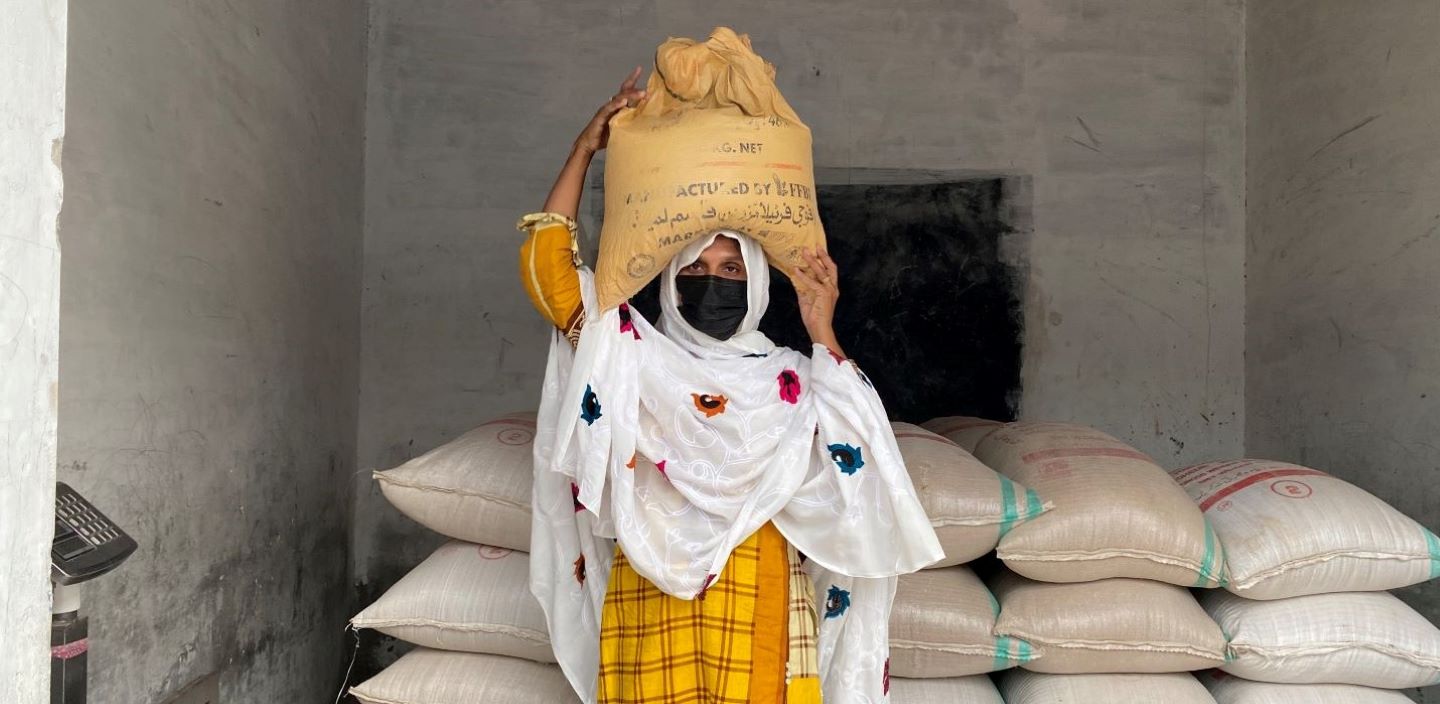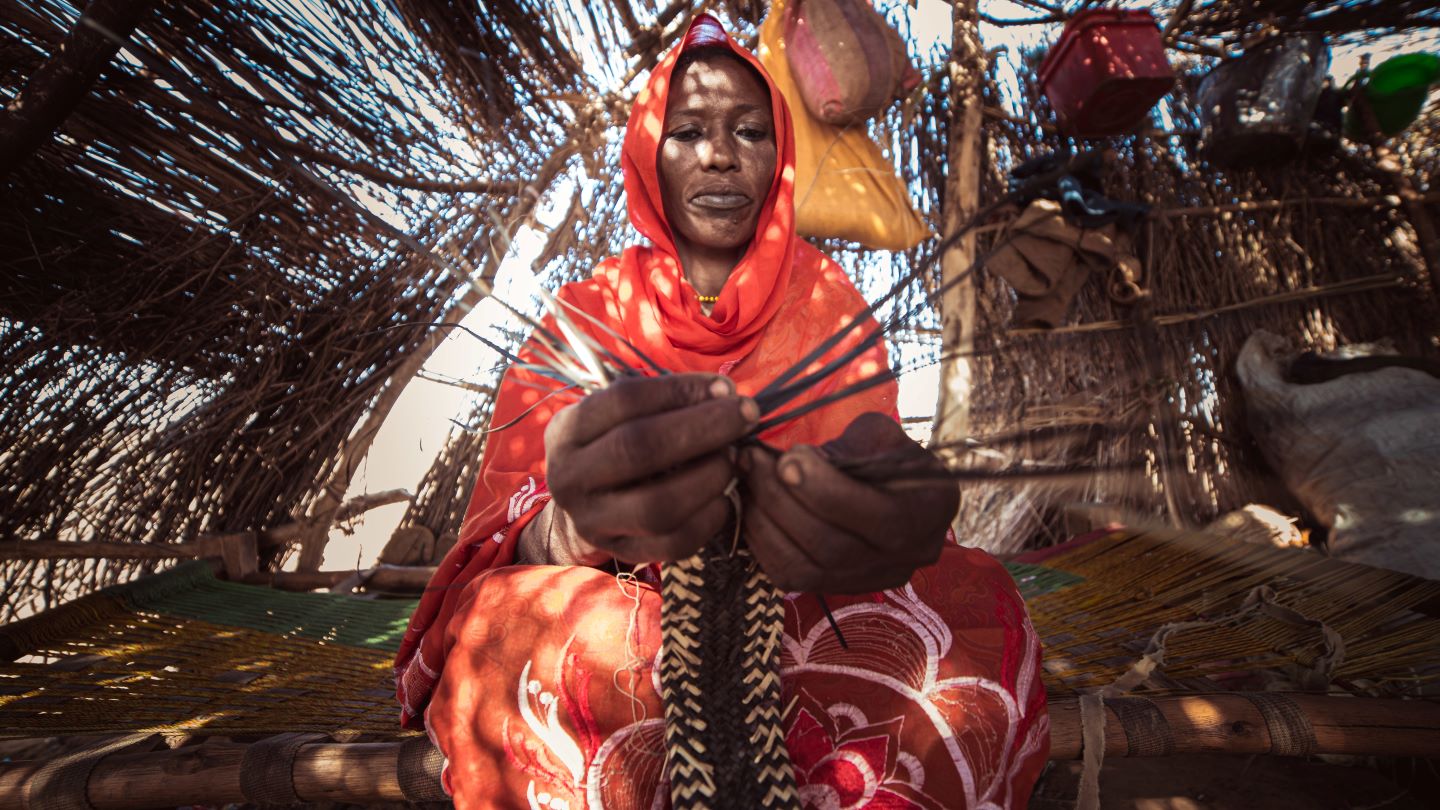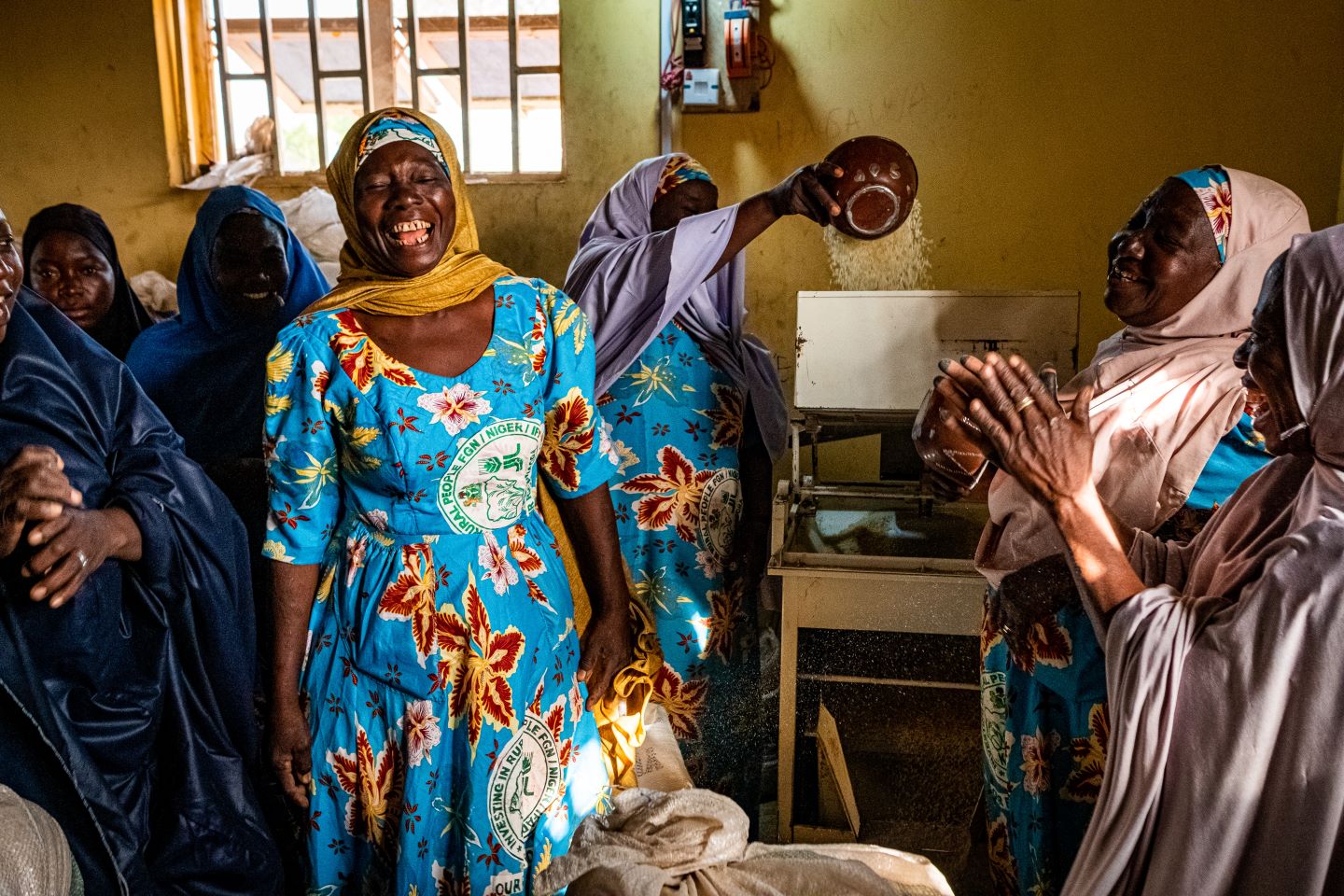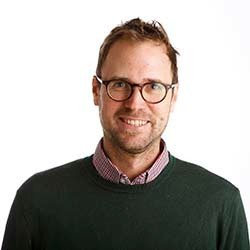With the world in firefighting mode, we cannot forget about rural women
IFAD Asset Request Portlet
Asset Publisher
With the world in firefighting mode, we cannot forget about rural women
By Steven Jonckheere, Federica Giordani, Morane Verhoeven

Rural women like farmer and seamstress Shaban Bibi, still bear the heaviest brunt of poverty and hunger
Working within IFAD’s gender team, we dedicate every day to advancing the rights and capacities of rural women. That’s why we distinctly remember celebrating the 25th anniversary of the Beijing Declaration and Platform for Action. It was early 2020, and the uphill battle for gender equality and women’s empowerment looked promising: women were more likely to be in leadership positions, work decent jobs and have access to health care and education.
Yet, as the world now faces a triple crisis, we fear that the progress rural women and girls have worked so hard for may be reversed. Why?
- Climate change amplifies gender inequalities in rural areas. For example, women are 14 times more likely than men to die during a disaster due to lack of information, poor resources and limited skills to respond to emergencies.
- The COVID-19 pandemic impacted the agricultural activities of rural women more so than men as women are more likely to engage in unpaid or low-paid seasonal or part-time jobs. Because of this, they may be left out of social protection or unemployment benefits, like cash transfers introduced during the pandemic.
- Conflict and instability exacerbate discrimination against rural women and girls, exposing them to heightened risks of gender-based violence, crime and abuse. And it’s not just limited to the direct impacts of war. Women are 8.4 times more likely to be food insecure than men, with this disparity increasing since the start of the war in Ukraine.
Those who will be most impacted by these crises are the poorest rural communities where women still bear the heaviest brunt of poverty and hunger. As the global community scrambles to react to these emergencies, investing in rural women and girls may slip down the list of priorities.
But as we go from crisis to crisis, focusing on short-term responses, we risk losing sight of the bigger picture: the world cannot progress without gender equality.
How IFAD is helping women become powerful agents of change
Empowering rural women is key to a more sustainable, resilient future. By harnessing their local knowledge and skills, food and nutrition security can be increased, poverty can be eradicated and rural communities can become resilient to climate change, as well as other crises.
To empower women, their voices must be amplified and they must be extensively involved when making decisions. In conflict-afflicted Sudan, traditional and religious beliefs around male dominance were challenged at village level through community groups, awareness-raising seminars on gender norms and roles, and trainings on water management, animal healthcare, and food processing. This has enabled women to raise their voices and take part in community leadership and decision-making.

IFAD invests in women's economic growth so they can increase and diversify their incomes, therefore protecting themselves and their families from shocks. In The Gambia, during the first waves of COVID-19, IFAD provided cash grants to vulnerable rural women. They used these grants to set up businesses and address their immediate needs, including buying food and schoolbooks.
Women and girls spend a disproportionate amount of time on household chores and caring for family compared to men and boys. Even if they have a voice and the means to support themselves, they cannot reach their potential when so much of their time is spent on these tasks. IFAD reduces women's workload by promoting equipment and techniques that slash the time and effort needed to do laborious tasks. For example, in rural China, biogas converters produce electricity from waste so women do not have to collect wood or tend cooking fires. Now, local women invest the 60 working days saved each year in raising pigs and producing crops.

©IFAD/ Bernard Kalu
Damaging formal and informal social norms and structures reinforce gender inequalities. For example, women’s roles were often unrecognized in rural Rwandan communities. Using the Gender Action Learning System, women were empowered to realize their economic potential, while healthier and fairer gender relationships were promoted within the household. As men better understood how their wives were overloaded with time-consuming tasks, many divided household chores in a fairer way and began making decisions together.
This will not be the last crisis we face so we must invest for the long term, while considering the specific needs of women and girls, tackling gender inequality and building resilience. A fairer, more inclusive and more sustainable future relies on this.
Publication date: 11 October 2022